Deployed 30 Small Satellites To Orbit
Rocket Lab has successfully launched its 16th Electron mission and deployed 30 small satellites to orbit – the largest number of satellites deployed by Electron to date on a single mission.
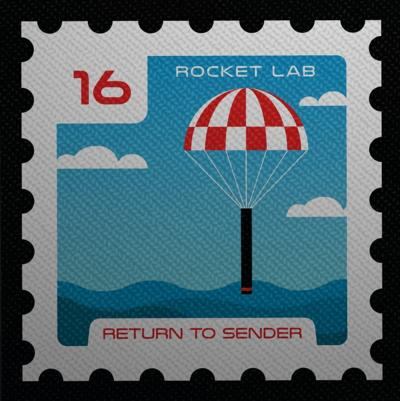
The ‘Return to Sender’ mission also saw Rocket Lab complete a successful splashdown and recovery of the first stage of an Electron launch vehicle for the first time, bringing the stage back to Earth under a parachute after launch. The recovery of a stage is a major milestone in Rocket Lab’s pursuit to make Electron a reusable rocket to increase launch frequency and reduce launch costs for small satellites.
Approximately two and a half minutes after lift-off, at an altitude of around 80 km, Electron’s first and second stages separated per standard mission procedure. Once the engines shut down on Electron’s first stage, a reaction control system re-oriented the stage 180-degrees to place it on an ideal angle for re-entry, enabling it to survive the incredible heat and pressure known as “The Wall” during its descent back to Earth. A drogue parachute was deployed to increase drag and to stabilize the first stage as it descended, before a large main parachute was deployed in the final kilometers of descent. The stage splashed down as planned. Rocket Lab’s recovery team will transport the stage back to Rocket Lab’s production complex, where engineers will inspect the stage to gather data that will inform future recovery missions.
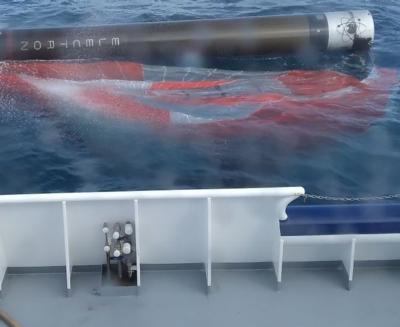
“What the team achieved today in recovering Electron’s first stage is no mean feat. It took a monumental effort from many teams across Rocket Lab, and it’s exciting to see that work pay off in a major step towards making Electron a reusable rocket,” said Rocket Lab founder and CEO, Peter Beck.
The ‘Return to Sender’ mission launched from Rocket Lab Launch Complex 1 on New Zealand’s Mahia Peninsula at 15:20 NZT, 20 November 2020, deploying satellites for TriSept, Swam Technologies, Unseenlabs, and the Auckland Programme for Space Systems at The University of Auckland. The mission brings the total number of satellites launched by Rocket Lab to 95. Among the payloads deployed were satellites designed to test new methods of deorbiting space debris, enable internet from space, and build upon a maritime surveillance constellation. The mission also saw New Zealand’s first student-built payload deployed to orbit, the APSS-1 satellite which is designed to monitor electrical activity in Earth’s upper atmosphere to test whether ionospheric disturbances might be linked to earthquakes. Rocket Lab sponsored the project by providing the launch at no cost to the University of Auckland.
Joining the satellites for the ride to orbit was a mass simulator shaped like a garden gnome, launched to space in support of Starship Children’s Hospital. Manufactured by award-winning design studio Weta Workshop for Valve’s Gabe Newell, Gnome Chompski is a 150 mm, 3D printed titanium gnome created as a nod to an achievement in the game Half-Life 2 that sees players carry a gnome through the came before depositing him in a rocket to be launched to space.
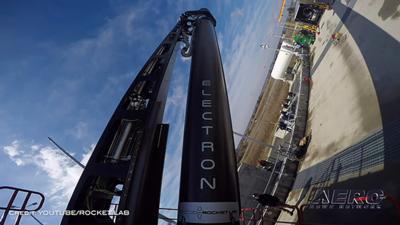
While watching Gnome Chompski get launched to space for real was a spectacle enjoyed by gamers worldwide, Mr. Chompski also served an important R&D function by allowing Rocket Lab to test and qualify novel 3D printing techniques that could be employed for future spacecraft components. Gnome Chompski’s time in space is limited though, as he remains attached to Electron’s Kick Stage and will de-orbit with it when the stage burns up on re-entry to the Earth’s atmosphere. For every person who watched the launch webcast, Mr. Newell donated a dollar to the Paediatric Intensive Care Unit at Starship Children’s Hospital. More than $280,000 has been raised.
“It’s a privilege to once again provide access to orbit for our returning customers Unseenlabs, Swarm Technologies, and TriSept, and to deploy a satellite for the University of Auckland for the very first time,” said Mr Beck. “Thank you to our incredible customers, and to the tireless team behind Electron who delivered mission success once again.”
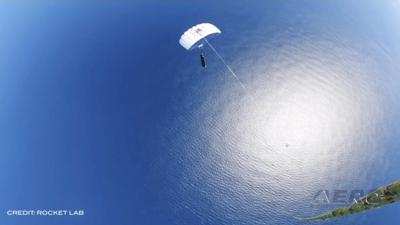
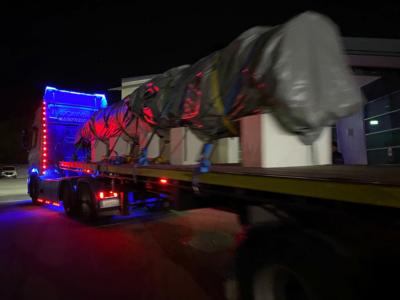
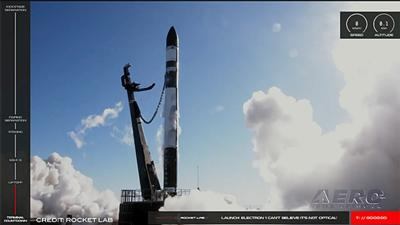
 ANN's Daily Aero-Term (06.03.25): No Gyro Approach
ANN's Daily Aero-Term (06.03.25): No Gyro Approach ANN's Daily Aero-Linx (06.03.25)
ANN's Daily Aero-Linx (06.03.25) ANN FAQ: Turn On Post Notifications
ANN FAQ: Turn On Post Notifications Airborne 05.30.25: Anti-Helicopter Bill, PW Strike Done, All-Electric Bristell
Airborne 05.30.25: Anti-Helicopter Bill, PW Strike Done, All-Electric Bristell Airborne 05.29.25: ATC Bonu$, VX4 eVTOL Flies, Starship 9 Test
Airborne 05.29.25: ATC Bonu$, VX4 eVTOL Flies, Starship 9 Test








